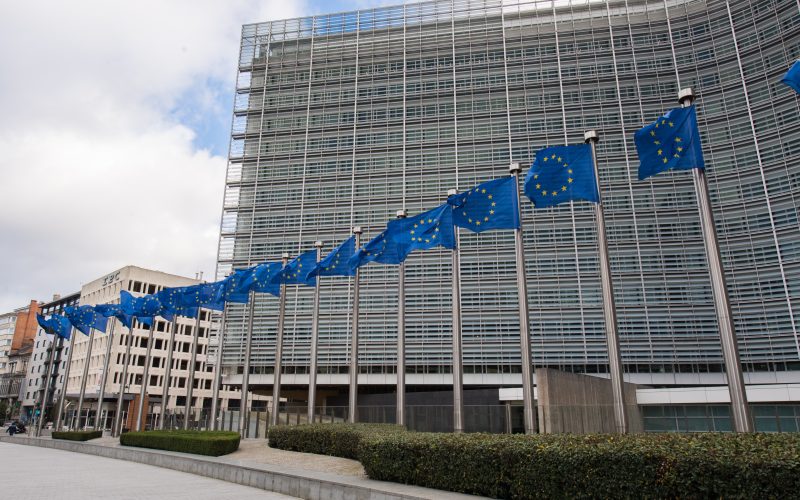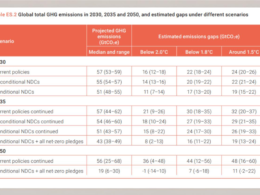The European Union (EU) has positioned itself as a global leader in sustainability with pioneering frameworks like the Corporate Sustainability Reporting Directive (CSRD) and the Corporate Sustainability Due Diligence Directive (CSDDD). These regulations aim to transform business accountability by enforcing environmental transparency and ethical supply chains. However, their implementation has sparked significant resistance, with critics warning that the EU’s bold climate agenda may jeopardise its industries’ global competitiveness.
This debate—spanning corporate boardrooms, national governments, and geopolitical arenas—raises a critical question: can Europe reconcile its ambition to lead on climate action with the economic pressures of a global marketplace?
Trump’s Anti-ESG Policies and European Sentiment
External geopolitical forces have added complexity to Europe’s sustainability debate. U.S. President Donald Trump has intensified his administration’s anti-ESG stance since returning to office. In January 2025, Trump withdrew the United States from the Paris Agreement for the second time, claiming it unfairly hindered economic growth. His administration has also rolled back environmental protections, halted federal funding for ESG-related initiatives, and criticised sustainability efforts as barriers to economic competitiveness.
Trump’s approach has resonated across the Atlantic. At the World Economic Forum in Davos, European executives echoed similar sentiments, expressing fears that over-regulation could harm European businesses. Nicolai Tangen of Norges Bank Investment Management warned that excessive bureaucracy in Europe risks stifling innovation and investment. Erik Ekudden of Ericsson added that regulatory simplification is critical if European companies are to remain globally competitive, particularly as the U.S. and China adopt different strategies.
Meanwhile, China’s aggressive green subsidies and strategic investments in clean technology—such as dominating the global solar panel market—have highlighted the disparity in global approaches. Unlike Europe’s compliance-heavy model, China prioritises financial incentives, making its industries both green and globally competitive.
Corporate Leaders Push Back on EU Sustainability Rules
Business leaders across Europe are voicing concerns about the challenges posed by EU sustainability regulations. Carlos Tavares, CEO of Stellantis, has warned that the EU’s carbon emission rules have raised manufacturing costs by 40%, making European vehicles less competitive. He noted that Chinese automakers enjoy a 30% cost advantage, creating a major hurdle for European producers in the electric vehicle (EV) market. Tavares has called for regulatory stability and state-backed incentives to encourage EV adoption, cautioning that Europe risks losing its leadership in the global automotive industry.
Vincent Clerc, CEO of AP Møller-Maersk, has also criticised the EU’s approach, describing it as overly focused on compliance rather than competitiveness. Clerc argues that Europe’s businesses face a “first-mover disadvantage,” as they bear the costs of leading on sustainability while competitors in the U.S. and China benefit from substantial government support.
Even Europe’s renowned luxury fashion industry is feeling the pressure. Italian manufacturers, known for their craftsmanship, are struggling to comply with new rules demanding supply chain transparency and fair labour practices. Smaller producers face disproportionate compliance costs, while non-compliant imports from less regulated regions undercut their competitiveness. This dynamic threatens Europe’s dominance in the luxury goods market.
What the Omnibus Act Means for European Sustainability
To address these growing concerns, the European Commission introduced the Omnibus Act, a proposal aimed at easing the burden of sustainability regulations. The Act includes measures to:
- Simplify CSRD compliance for small and medium-sized enterprises (SMEs).
- Extend deadlines for sustainability reporting requirements.
- Provide sector-specific flexibility for high-impact industries.
While businesses have welcomed the Omnibus Act as a step toward balancing ambition with practicality, environmental advocates remain sceptical. Critics argue that loosening requirements could jeopardise the EU’s climate goals, including its commitment to the European Green Deal and achieving net-zero emissions by 2050. The Omnibus Act highlights the delicate balancing act Europe must navigate: maintaining climate leadership while addressing economic realities.
The Path Forward: Sustainability as a Competitive Advantage
Despite the challenges, the EU’s sustainability regulations present significant opportunities for businesses that embrace them. Companies that view sustainability as an integral part of their strategy—not just a compliance burden—can enhance their global competitiveness. For example, adopting digital tools for sustainability reporting or investing in circular economy practices can drive innovation and attract ESG-focused investors.
Policymakers, meanwhile, must strike a balance between ambition and pragmatism. Introducing financial incentives for green innovation—similar to the U.S. Inflation Reduction Act—could complement existing regulations and ease the burden on industries. Engaging with stakeholders across sectors will also be critical to ensure regulations are both effective and practical.
Defining Europe’s Sustainability Legacy
The EU faces a pivotal moment in its sustainability journey. Its ambitious regulations have positioned it as a global leader in climate action, but growing resistance from businesses and Member States underscores the need for balance. By addressing legitimate concerns while maintaining its climate commitments, Europe has the opportunity to demonstrate that sustainability and competitiveness can coexist.
The decisions made now will shape not only Europe’s industries but also the global narrative on corporate responsibility. If the EU can align its climate leadership with economic resilience, it will set a powerful example for the world. Should it falter, it risks losing its edge in the race for sustainability. The stakes have never been higher.
















